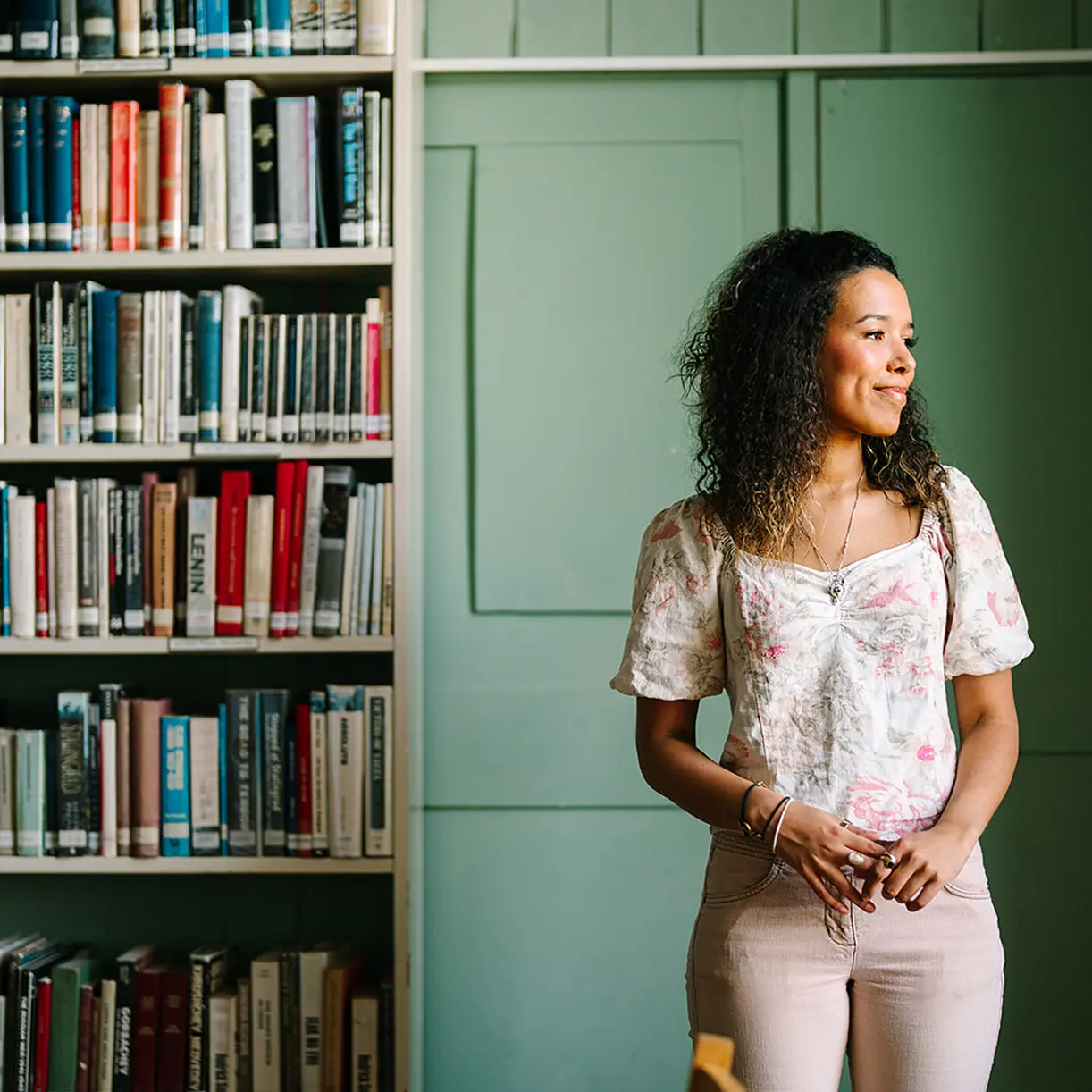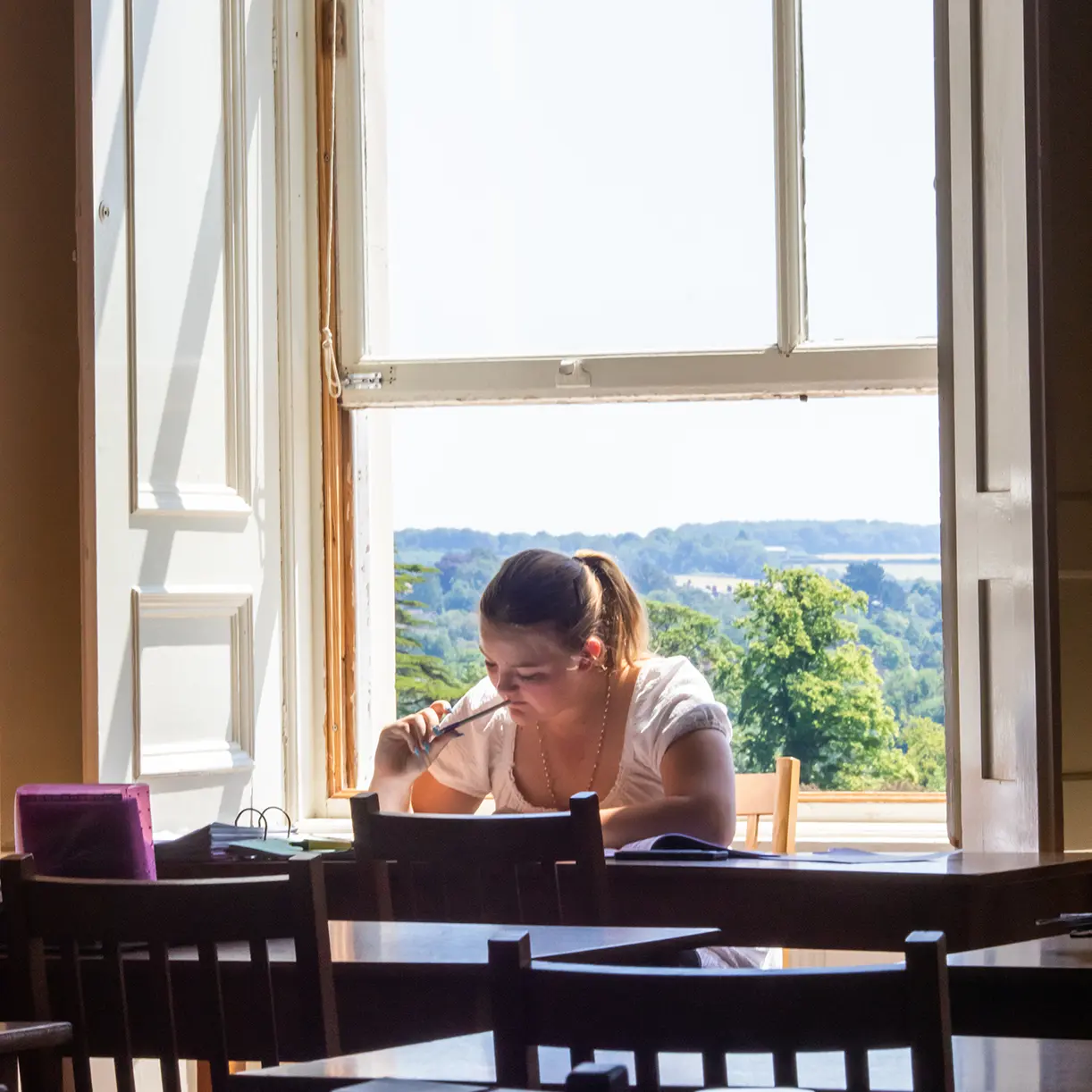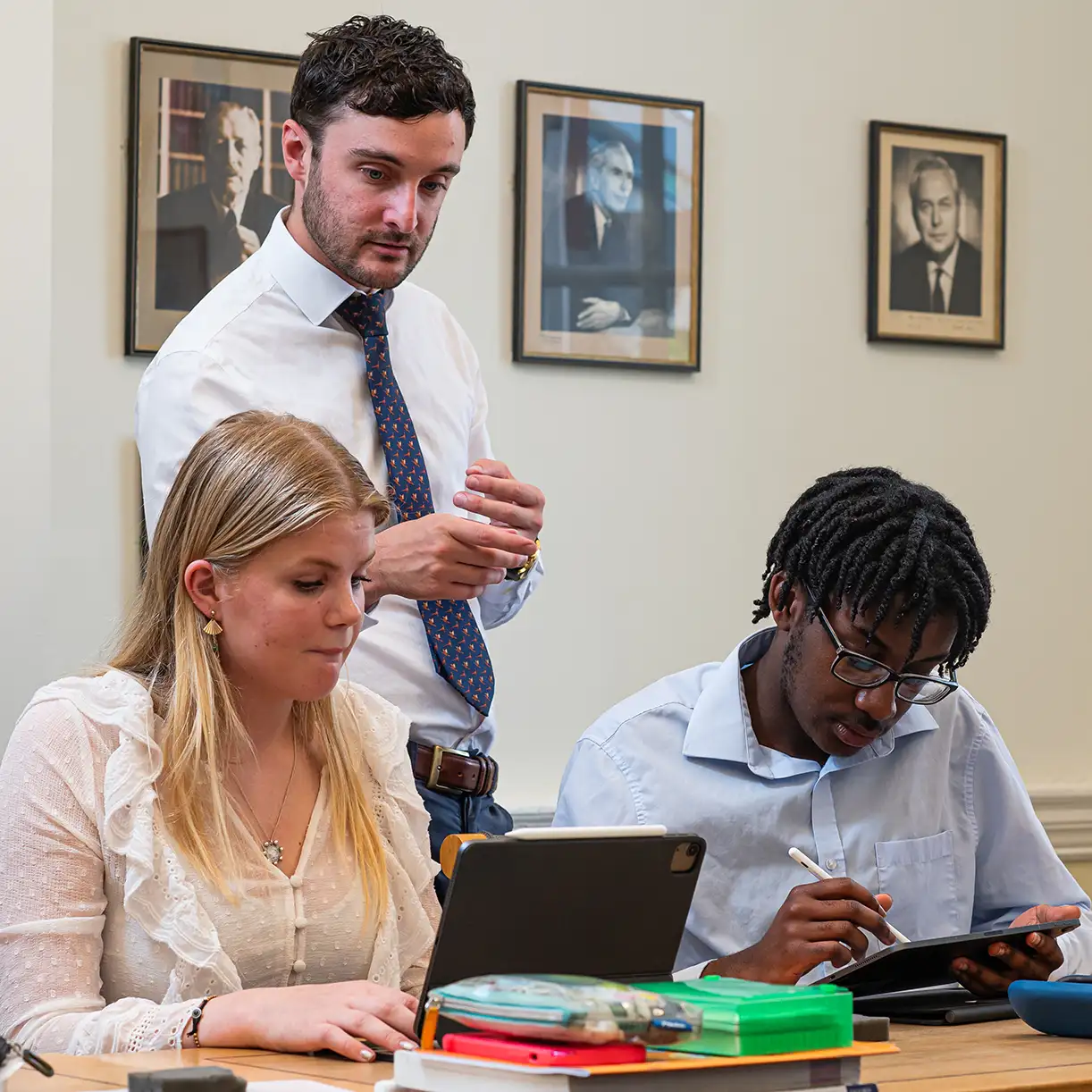
Cultivating critical thinking, curiosity, and insight
Pupils studying psychology at Bryanston learn to challenge research findings and methodologies, suggest improvements, develop their analytical reasoning and broaden their perspectives on the processes of human behaviour.
The curriculum not only encourages academic enquiry, but also self-awareness, empathy and curiosity. Some of the discussions held in class cover difficult and sensitive material, and this enhances the maturity and ability of our pupils to express their opinions sensitively.

In and beyond the classroom
Research methods and data analysis are integral elements to the study of psychology and are delivered alongside key content so that pupils develop a working knowledge and understanding of their relevance to psychology as an experimental discipline.
Pupils are also given plenty of opportunities to get hands-on and be the researcher: either replicating famous studies, or designing and conducting their own investigations.
The application of psychological concepts is another key skill and pupils enjoy the opportunity to apply what they have learned to a wide range of contexts, often having to offer advice and information on hypothetical problems.
Pupils are able to see what they have been learning in the world all around them and they regularly comment that their studies have helped them to understand behaviour or phenomenon they have witnessed first-hand.

Correction periods for Sixth Form pupils are utilised to great effect in the department. They offer pupils the opportunity to develop both their written and verbal communication skills, as well as their understanding of difficult concepts. The seminar style of the sessions acts as an excellent preparation for university study.
The department also offers a range of extra-curricular opportunities including extension discussion groups, exam skills masterclasses and psychology film nights. We are particularly keen for pupils to appreciate the links between their other subject studies and host a series of pupil-led talks to explore these overlaps.
The psychology curriculum
Pupils can choose to study psychology as an A Level, or within the International Baccalaureate.
-
A Level Psychology
The A Level psychology curriculum includes the following compulsory topics:
- Social influence
- Memory
- Attachment
- Psychopathology
- Approaches in psychology
- Biopsychology
- Research methods
- Issues and debates in psychology
Pupils also have the option to choose from three elective units and have input to this decision each year:
- Option 1: Relationships, Gender or Cognition and development
- Option 2: Schizophrenia, Eating behaviour or Stress
- Option 3: Addiction, Aggression or Forensic psychology
These optional topics give pupils a deeper understanding of different areas within psychology.
-
IB Psychology
The first year of our IB psychology curriculum covers brain and behaviour, cognitive processing, individual and group dynamics, genetics and behaviour, cognitive process reliability, and culture and cognition.
Higher-level pupils explore animal research, the digital world and globalisation.
In year two, pupils explore influences on cognitive and social development, social responsibility, developing an identity, interpersonal relationships and group dynamics.
-
Beyond Bryanston
The study of psychology offers pupils the opportunity to develop a broad skillset that will enhance their application to a wide range of courses in further study or employment. It is a great option to act as a balance or contrast to other subjects. Our students are well-equipped for higher education due to the range of skills they develop as part of the course.
Every year, pupils choose to study psychology and related disciplines at university and we are well-placed to support pupils with their applications.
After higher education, many of our pupils have become therapists, psychologists, or counsellors, profoundly affecting the lives of people facing mental health challenges. Psychology is a diverse and rapidly growing field and demand for psychologists is ever-increasing.
Our psychology teachers
Lauren Woodville, Head of Psychology, completed her BSc (Hons) in Psychology at the University of York, before joining the Teach First programme in London to qualify as a mathematics teacher.
Lauren has taught mathematics and psychology in both the state and independent sectors and loves the overlap between the two subjects. As an external examiner, Lauren is well-placed to develop both staff and pupils’ essential skills for assessments.
Our department all hold specialist qualifications in both psychology and education. This is a particular strength of the department as very often psychology is taught by non-specialists.
Each of our teachers has a different area of expertise and this enables our pupils to gain a unique insight to each of these fields and the application of psychology beyond the classroom. The department brings their passion and enthusiasm for the subject into every lesson.

Find out more about Bryanston Sixth Form
Come and discover our Sixth Form options for 2026. Learn about our A Level, IB and CTEC pathways, and enjoy a guided tour of our outstanding school.
Book Your Place